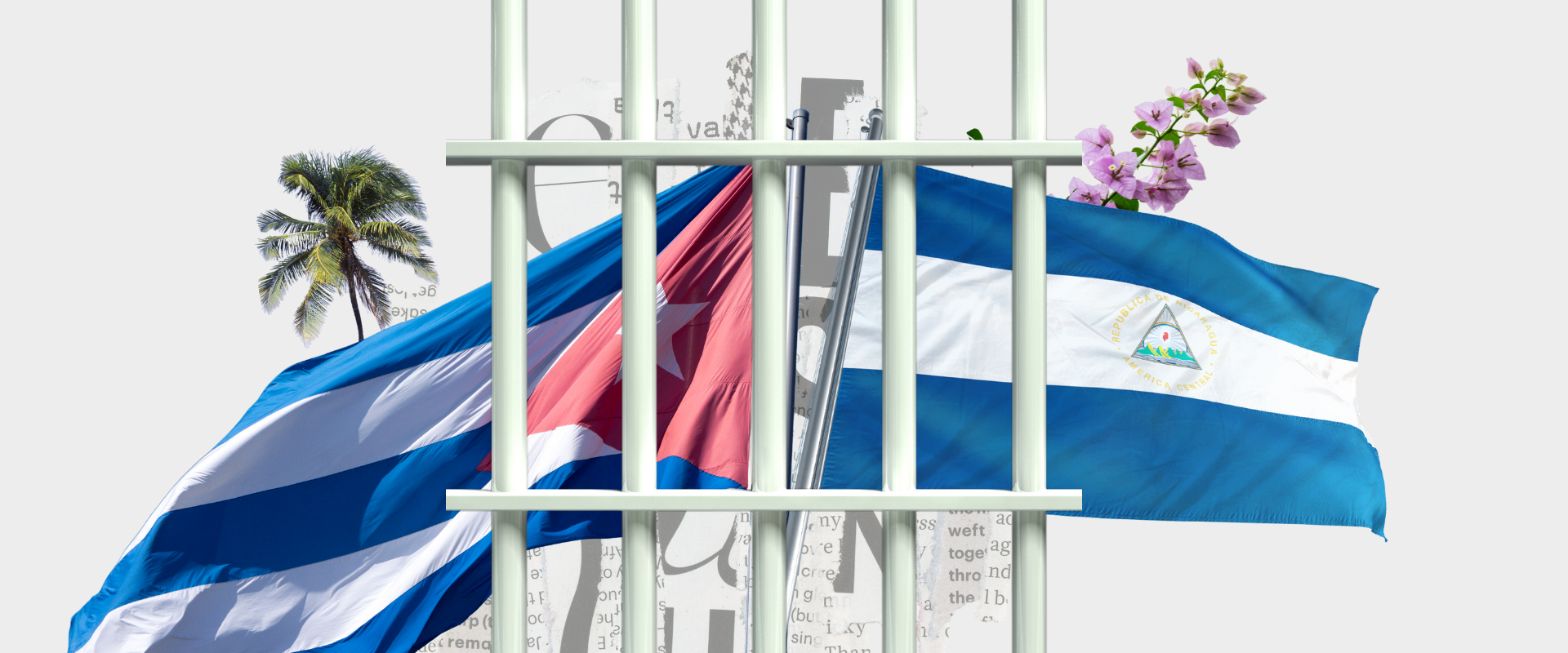Cuba and Nicaragua: countries where independent journalism is a crime
On World Press Freedom Day, we demand that Cuban and Nicaraguan authorities respect independent journalism, without resorting to violence and repression against those who practice this profession. Washington D.C., May […]

On World Press Freedom Day, we demand that Cuban and Nicaraguan authorities respect independent journalism, without resorting to violence and repression against those who practice this profession.
Washington D.C., May 3, 2024 – In the authoritarian regimes of Cuba and Nicaragua, independent journalism is punished with imprisonment, exile, arbitrary deprivation of nationality, confiscation of personal property, and media outlets. On World Press Freedom Day, commemorated today worldwide, and recognizing that freedom is an essential pillar for accountability and the proper functioning of public institutions, the Institute on Race, Equality, and Human Rights (Race and Equality) highlights the work of Cuban and Nicaraguan journalists, who tirelessly strive to bring visibility to the democratic and human rights crises in their countries and advocate for their people’s right to access truthful and diverse information.
Cuba: Arbitrary Detentions and Repression
In Cuba, “home arrests, summonses, and detentions of journalists and reporters continue to be one of the main tactics used by the government to intimidate them or as a way to inhibit independent and critical journalism,” according to Chapter IV.B of the 2023 annual report by the Inter-American Commission on Human Rights (IACHR).
According to the report ‘Cuba: Resistance against Censorship,’ prepared by the organization Article 19, there were a total of 274 attacks against journalists and activists on the island last year. At least five journalists and reporters remain deprived of their liberty for political reasons, facing unjust charges for exercising their right to freedom of expression. These individuals are Lázaro Yuri Valle Roca, Jorge Armando Bello, José Antonio López Piña, Jorge Fernández Era, and Luis Ángel Cuza.
The authoritarian Cuban regime has also increased restrictions and obstacles for the entry and exit of independent journalists from the territory. As of April 2024, journalists Reinaldo Escobar, Camila Acosta, Anais Remón, and Henry Constantín were banned from leaving the country.
Additionally, Cuban authorities have imposed a series of regulations severely limiting the exercise of press freedom and journalistic work in Cuba. Among these measures are mandatory military service for women wishing to study journalism, Decree 370 which suppresses free expression on the Internet, and the Social Communication Law, which regulates media content on the island and disregards independent press as a legal entity.
This grim picture of Cuba forces independent journalists to work under precarious conditions, facing constant threats and reprisals; however, their determination to shed light on injustices and defend the human rights of this country is unwavering.
Nicaragua: Between Clandestinity, Exile, and Self-Censorship
In the 2023 Annual Report of the IACHR, the organization and the Special Rapporteurship for Freedom of Expression (RELE) warned that “censorship and repression reached alarming levels” in Nicaragua.
Since the beginning of the socio-political and human rights crisis in April 2018, more than 250 journalists have been forced into exile, 56 media outlets have been shut down and their buildings confiscated, 22 journalists have been stripped of their nationality and their properties seized, and the murder of journalist Angel Gahona, who covered the start of peaceful demonstrations six years ago, remains unresolved.
In the past year, the Ortega Murillo regime has extended arbitrary detention for political reasons to journalists who weren’t even covering political topics. Such as the case of Víctor Ticay, arrested while covering a religious procession and sentenced to 8 years in prison for unproven charges of ‘spreading false news and conspiring to undermine national integrity.’
There are also reports of five journalists who were accused of the same false charges and detained for a few hours, as well as cases of 22 female journalists who have been victims of sexual harassment by police forces.
It’s worth noting that agents of the National Police, both uniformed and in plain clothes, are the main aggressors against press freedom in the country. Additionally, the regime employs the Directorate of Migration and Foreigners and the Nicaraguan Institute of Telecommunications for coercive purposes. The approval of repressive laws, such as the Special Law on Cybercrimes and the Sovereignty Law, has exacerbated the situation by granting the regime powers to prosecute and punish anyone who criticizes the government.
This repression has led to independent journalism being completely silenced in 5 out of Nicaragua’s 17 departments. However, Nicaraguan journalists work clandestinely and in exile, overcoming censorship and disseminating the truth about the crimes against humanity committed in Nicaragua.
For Race and Equality, World Press Freedom Day recalls the importance of the right to press freedom and expression in the functioning of a democratic society. We take this opportunity to call on the international community to defend these rights and work together to ensure that the voices of independent journalists are no longer silenced by the authoritarian regimes of Cuba and Nicaragua. We demand that the authorities of both states guarantee this right and allow for the development of independent journalism, without resorting to violence and repression against those involved in this profession.

